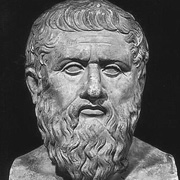


Renowned American poet, essayist and lecturer, Ralph Waldo Emerson said, “Philosophy is Plato, Plato is philosophy”. Plato, part of the triad of Socrates and Aristotle that shaped the Western philosophy, almost single-handedly elucidated and propagated the teachings of his beloved mentor, Socrates, in his famed dialogues.
His range is gargantuan, encompassing everything from philosophy to politics, poetics to theology, and ethics to pedagogy. The Western world was certainly populated with a good number of philosophers such as Pythagoras, the famous Italian mathematician and Heraclitus, the well-known ancient Greek philosopher, before the advent of the famous trio, but the earlier philosophers were immersed in the natural world consisting of physical manifestations such as the stars, habitats, landscapes, vegetation, and etcetera. With the advent of Socrates and his student-biographer Plato, the human mind and soul became the subject of contemplation. Socrates’ dictum ‘Know thyself’ was promoted by Plato until it became the cornerstone of Western thought. The credit of popularizing Socrates ideas goes entirely to Plato, who not only explicated his teacher’s thoughts, but also added great dimension to these beliefs with his own contemplation and study..

This giant among men was born around 427 BC in Athens, and raised in an affluent household. His father, Ariston was of royal lineage, reputedly from the king of Athens, Codrus, and the king of Messenia, Melanthus. Plato was christened Aristocles, after his grandfather, but was named Plato by his physical instructor because of his athletic build and broad shoulders. His mother Perictione was the sister of Charmides, and niece of Critias, both prominent figures of the Thirty Tyrants who ruled the city-state of Athens then, having overthrown the previous democratic government.
Plato was born in the midst of war, a common feature of the Greek polis or city-state, for the ancient Greeks were usually at war with one another, despite sharing religious beliefs and culture. It is therefore not surprising that he was constantly in search of a utopia of peace, and strove to inculcate certain virtues into Athenians, so that there could be peace and progress. His childhood, otherwise pleasant, was nevertheless darkened by the constant disturbance of war, specifically the Peloponnesian war that began in 431 BC and went on till 404 BC between Athens and Sparta, soon engulfing all the other poleis or city-states, forcing them to take sides. It was usual, so to say, for Athenian children to grow up in war-like conditions, but sensitive souls such as Plato, could not simply turn a blind eye to these conditions.
Although no written records exist of the actual process of Plato’s disenchantment with the state of affairs, it can be unmistakably reconstructed from his works. Such hostile conditions made it imperative for children to undergo rigorous physical education, which Plato also underwent. Just as mathematics, music and philosophy had to be learnt, so had to be physical fitness. Plato attended a gymnasium from a young age, where he had to learn to increase his stamina by practicing running, jumping, playing ball games, boxing, wrestling and throwing the discus and javelin. Plato is said to have wrestled at the ‘isthmian’ games and performed well. It was even said that he went for a public contest at the Pythian Games. He is known to have participated in the Peloponnesian war around 404 BC. Hence, it can be inferred that he was a man of the world and not the other-worldly person as some of his critics try to paint him.

Plato had three siblings: two brothers, Adeimantus and Glaucon, and a sister Potone. His father is believed to have died when Plato was very young. Eventually, his mother married Pyrilampes, her maternal uncle who was an ambassador to the Persian court. He was also the friend of Pericles, the leader of the ‘Democratic Faction’ in Athens. Antiphon was his half-brother, son of his mother and Pyrilampes. Plato grew up in a household of six children which included a stepbrother, a sister, two brothers and a half-brother. He seemed to be quite attached to this extended family, as Plato regularly mentioned them in his dialogues. Charmides has one named after him; Critias speaks in both ‘Charmides’ and ‘Protagoras’; Adeimantus and Glaucon take prominent parts in ‘The Republic’. According to Burnet, "the opening scene of the Charmides is a glorification of the whole [family] connection. Plato's dialogues are not only a memorial to Socrates, but also a reminder of the happier days of his own family."
Like all the other rich and well-placed youths of his time, Plato had the best of teachers. Plato received the regular Athenian education, both physical and cerebral. He was taught grammar, music, painting and gymnastics by the most distinguished teachers in Athens. Early in his youth, Plato took up the profession of poetry as it was considered prestigious to indulge in both academics and art, besides corporal attainment. At first, he wrote dithyrambs (wildly enthusiastic chants of irregular form, usually in honor of the god of wine, Bacchus), but then turned into writing lyric poems and tragedies. We can only surmise from his existing writing that he might have turned into a fine poet, had he been persistent. It is believed that he burnt up all his poems when he later met Socrates, who considered poetry and poets as having a deleterious effect on society, and turned fully to philosophy. Of course, he had the alluring option of joining government, especially since he was invited by Critias and Charmides of the Thirty Tyrants to join the administration. But Plato had no illusions about their ambitions and was repelled by the ruthless acts of the regime. He was highly disappointed when the Thirty Tyrants tried to implicate Socrates in their seizure of the Democratic General, Leon of Salamis for summary execution. Socrates refused to take part in such witch-hunting, thereby finding great support in the young generation that was already disillusioned with the repressive measures of the Tyrants.
In 403 BC, racy was restored when the ratic forces reorganized themselves in exile and defeated the forces of the Thirty Tyrants. Critias and Charmides both were killed in the battle. There are no details of Plato’s life on which one can build his later achievements. But as Emerson aptly puts it, “Great geniuses have the shortest biographies. Their cousins can tell you nothing about them. They lived in their writings, and so their house and street life was trivial and commonplace. If you would know their tastes and complexions, the most admiring of their readers most resemble them. Plato, especially, has no external biography. If he had lover, wife, or children, we hear nothing of them. He ground them all into paint. As a good chimney burns its smoke, so a philosopher converts the value of all his fortunes into his intellectual performances.”

Despite the absence of personal information about the philosopher, we do know that Plato and his brothers, Glaucon and Adeimantus had tasted the heady potion of philosophy from Catylus who had first taught them philosophy. Catylus was a student of the renowned philosopher Heraclitus who was among the first to popularize the idea that the physical world was not as real as was thought; it was constantly changing. Plato found this philosophy quite absorbing, as did many of his compatriots. Hence, when he heard of Socrates, it was only a matter of time before he was drawn to his profound philosophy although Socrates was mercilessly lampooned by Aristophanes in the famous play ‘Clouds’, for being other-worldly. Aristophanes mocked Socrates because the latter would often claim that he got divine messages about future events. There is a famous story that tells about Socrates having a dream shortly before meeting Plato. In the dream, a cygnet flew onto his lap. Soon the cygnet grew up and became a swan and sang lovely songs.
Dreams were very important to the Greeks. Socrates believed that Plato was the cygnet in his dream. This becomes more credible especially because Greece was a land of the famed Oracles, women who lived in Greek temples and whose forecasts were valued by one and all as people thought that the gods themselves spoke through these Oracles. Battles were fought; heirs of kings were exiled centered on the Oracles’ prophecies.
By the time he was in his twenties, Plato was already an avowed admirer of Socrates, all the more so as he was impressed by Socrates’ fearless stand against the Thirty Tyrants who had asked him to execute the virtuous Leon of Salamis. The chronology of Plato’s life and work is a little hazy, as neither he nor his teacher were great keepers of notes. Some of the events mentioned contradict the dates of other happenings. Hence, the exact dates of his works cannot be determined with certainty. However, we do know that he met Socrates when he was about 28.
The Socratic approach swept him off his feet as, prior to it, philosophy was concerned primarily with an empirical study of nature and the physical world. Socrates, however, took philosophy to the level of the examination of morality, goodness and happiness. This philosophic methodology was so logical, so diverse from mere conjectures about the role of gods in the creation of the world and its phenomena, that it is no surprise that Plato decided that he had met his destiny when he saw the Socratic Method in action. It was only natural for the three brothers to join Socrates in their quest for intellectual fulfillment. This proved to be a defining moment in Plato’s life, as he established himself as the wise teacher’s best student by dint of his sharp intellect, quick grasp of the Socratic Method and huge intellectual and literary capability… “and under the guidance of the old ‘gadfly’(a name that Socrates gave to himself) he passed from mere debate to careful analysis and fruitful discussion”, in the words of Will Durant, author of ‘The Story of Philosophy’.
The stimulating glimpses Plato had of the mental agility of his teacher enamored the latter to him. This is amply in evidence in all his dialogues, “I thank God that I was born in the age of Socrates”, Plato had exclaimed.
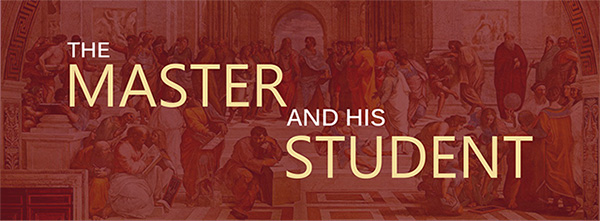
Socrates never wished to destroy established institutions, as is evident in Plato’s work, The Apology, but he systematically broke down accepted beliefs about justice, equality and education. His method of breaking down certain popular notions and exposing their true intent never ceased to impress his friends and strike fear in others. For instance, in the Greece of Plato’s time and even before, Sophistry or the art of speaking convincingly on any subject was deemed an important educational, social and political accomplishment, and sophists earned large sums by their ability to speak persuasively on any subject. For a reasonable sum of money, the sophist could glibly convince a person that wrong was right, and vice versa. Their smooth talks won them powerful friends in important places. He considered sophists simply clever wordsmiths, who could cleverly and convincingly enunciate any subject, without possessing any great knowledge about it. Hence, their art was nothing but artifice, a clever imitation at most. The sophists were amply paid to speak in anyone’s favor on any subject. Socrates exposed the sophists with his brilliant logical questioning and worsted them. His techniques impressed his friends and students, but antagonized the powerful sophists and their corrupt friends, whose resentment against Socrates soon built up to a crescendo.
From Socrates, Plato and his friends learnt the art of questioning every so-called ‘principle’, employing interrogation to deconstruct every pretension, every affectation, and every sophistic turn of phrase. He had no animosity towards anyone, as his sole aim was to have more upright people in Athens. Socrates showed Plato the worthless arguments of the sophists, the ill-conceived schemes of rulers who catered to the pleasures of people, rather than looking to their welfare, and the blindness of the general masses who were entrusted with the task of choosing a government. Socrates himself committed nothing to writing. He never trusted the written word, which, for him, was just another form of mimesis or imitation of the spoken word. Imitation in any form was artificial, in Socrates opinion, and had to be avoided. It was his disciples, Plato, and to an extent Xenophon, who wrote about Socrates, sometimes even as Socrates. Plato faithfully elaborated the Socratic Method that entailed negating convictions by proving that they were based on ulterior motives. He also used the dialogue to brilliant effect, as even the densest of ideas make for the most absorbing reading. It is interesting to observe that Socrates never penned down his thoughts, and his premier student never attributed his own writings to anyone but his teacher. Thus, Plato never asserted his own opinions in any of his works, ascribing all of it to Socrates, except in The Apology, in which he bemoaned the death of his beloved teacher.

It was only for about eight or nine years that Plato could remain with Socrates, as the doom that he and his fellow students were dreading, finally befell their adored teacher one fateful day in 399 B.C. Socrates’ trial was more of an inquisition in which it was already a foregone conclusion that his powerful enemies would wield their power and have him executed. But to be fair to the jury, Socrates was allowed to apologize or pay a penalty, neither of which he would do, much to the dismay of his distraught disciples. His irrefutable logic that he did not regret what he had done and that he could not disrespect the law and escape his death penalty, was incredibly brave and optimistic in the face of definite execution. Socrates is portrayed as being logical and clear-headed even in the face of death when he states, “This inquisition has led to my having many enemies of the worst and most dangerous kind, and has given occasion also to many calumnies. And I am called wise, for my hearers always imagine that I myself possess the wisdom which I find wanting in others: but the truth is, O men of Athens, that God only is wise…”
Plato and his fellow students did everything to convince their loving teacher to buy his way out or to plead for mercy. But they had not imagined the calmness with which their noble teacher would embrace death, upright and courageous till the last. Ironically, it was the crooked ratic government itself that condemned Socrates for corrupting the youth. The denouement of Socrates’ brilliant career and life are poignantly portrayed in ‘The Apology’. William Wimsatt and C. Brooks consider the ‘Apology of Socrates’ a fine example of the poetic soul in Plato the philosopher. In ‘Phaedo’, for instance, when Socrates is given hemlock, Plato laments, “…we waited, talking and thinking of our sorrow; he was like a father of whom we were being bereaved, and we were about to pass the rest of our lives as orphans…when we saw that he had finished the draught, we could no longer forbear, and in spite of myself my own tears were flowing fast.”
The unjust execution of a revered and enlightened spirit, Socrates, drove out the modicum of hope Plato had held when the Thirty Tyrants were overthrown and a ratically elected leadership took over the reins of Athens. He was now convinced that no form of government could be good. If the meeting with Socrates had been a turning point in Plato’s life, the loss of his adored teacher was the worst crisis.

For a while, Plato mourned the death of Socrates but later following the wise counsel of his well-wishers, he thought it to be best to travel away from Athens for a while and voyage to far flung places such as Egypt, Rome and some say even India.
He was humbled by the priestly rulers of Egypt who thought nothing of the Greek civilization. The small ruling class set up in Rome by Pythagoras inspired him, and a great deal of his fundamental beliefs seemed to tally with the Vedic knowledge of India. Plato and other Socratic men had to take temporary refuge at Megara with Euclid in 399 BC with Euclid, the Greek mathematician also known as the Father of Geometry. Plato traveled to Italy, Sicily, Egypt and Cyrene and returned to Athens at the age of forty. These years of anonymity were the years in which he had all the time to mull over the random manner in which Socrates was eliminated. He learnt a great deal during his travels and was able to give his own thoughts concrete shape.

Plato’s adventures did not end here. Somehow, he always remained entangled with the politics of the city of Syracuse in Sicily. The chain of events that followed perhaps illustrated to Plato the difficulty of putting into practice some of his pet theories. According to Diogenes, Plato first visited Syracuse under the rule of Dionysius. On his first trip, Dionysius' brother-in-law, Dion of Syracuse became one of his disciples, but the irony of fate was such that the ignorant and degenerate Dionysius, unable to comprehend the lofty ideals of Plato, himself turned against Plato and sold him into slavery.
One can only imagine the mental agony of the renowned philosopher, being subjected to such humiliation. He suffered privations and his suffering left him nearly dead in Cyrene, a city at war with Athens. It was only when an admirer recognized Plato that he was rescued and sent back home. This episode might have shaken his confidence, but he was not defeated. Once again, the call of Syracuse became irresistible and when Dionysius died, Dion requested Plato to return to Syracuse and tutor Dionysius II, and guide him to become a philosopher- king, which was one of Plato’s favorite political theories.
One can only marvel at Plato’s optimism when he agreed to go to the same place where he had almost been killed. It exemplified his altruistic nature as he put his ideals above his personal fears and ventured forth to Syracuse a second time, to try to create the ideal state ruled by a philosopher-king. “If anyone were ever to try to realize our theories about laws and constitution, an attempt must be made now, I set out from home…chiefly for the sake of self-respect fearing the shame of seeming to myself to be nothing more than a mere man of words, who would never set his hand to any deed”, he wrote. It was not sufficient to have a formal model of governance, if such a model were not feasible. Hence, Plato ventured once again to the dangerous and unpredictable state of Dionysius II. Initially, the ruler accepted his teachings but later, alas, he proved to have feet of clay as he became suspicious of his uncle, Dion. As a result, Dion was expelled and Plato was forcibly detained. Eventually, Plato managed by bargaining with Dionysius II. Dion returned to Syracuse and overthrew Dionysius II and ruled for a short time until Syracuse was finally taken over by Calippus, a fellow disciple of Plato.

At length, Plato returned to Athens at the age of about forty, in 387 BC when he founded one of the earliest known organized schools in Western civilization, ‘The Academy’, on a plot of land in the grove of Hecademus. Many prominent intellectual people schooled in ‘The Academy’, including Aristotle.
This was also the period of his most prolific writing. Most scholars agree that shortly after 399 BC Plato began to write extensively. Although the order in which his dialogues were written is a matter of debate, there is some consensus about how the Platonic body of work evolved. This consensus divides Plato's writings into three broad groups. The first group, generally known as the ‘Socratic dialogues’, was probably written between the years 399 BC and 387 BC. These texts are called ‘Socratic dialogues’ because here Plato appears to remain relatively close to what the historical Socrates advocated and taught. One of these, ‘The Apology’, was probably written shortly after the death of Socrates. The ‘Crito’, ‘Laches’, ‘Lysis’, ‘Charmides’, ‘Euthyphro’, ‘Hippias Minor and Major’, ‘Protagoras’, ‘Gorgias’ and ‘Ion’, were probably written throughout this twelve year period as well.
It seems that over the next twenty six years, Plato's philosophical speculation became more insightful and his dramatic talents more refined. Between 387 BC and 367 BC, what is sometimes called Plato's middle or transitional period, Plato could have very well written dialogues that were more difficult and abstruse such as the ‘Meno’, ‘Euthydemus’, ‘Menexenus’, ‘Cratylus’, ‘Republic’, ‘Phaedrus’, ‘Symposium’ and ‘Phaedo’. These texts differed from the earlier works as they were inclined towards the grand metaphysical speculation that provided us with many hallmarks of Platonism, such as the method of hypothesis, the rebirth theory and, of course, the theory of ideas, or forms, as they were sometimes called. The last period of Plato's literary activity spans the time from 360-347 BC. Hence, rather than compartmentalize his writing, it is more useful to understand the underlying philosophy that orders all his beliefs. Some of the dialogues have drawn flak regarding their authenticity. However these contentions have proved more academic in thrust than of any illustrative value. Alfred North Whitehead sums up the perfect response when he says, “The safest general characterization of the European philosophical tradition is that it consists of a series of footnotes to Plato.”

It can be gleaned from Plato’s works that his approach to ethics, politics, psychology and religion plays an integral part in all his works. His basic beliefs order the doctrines he propounded. His earliest works called the ‘Socratic Dialogues’ include the central idea of being virtuous, not retaliating, suffering rather than inflict suffering – all in order to keep the soul as pure as possible. Plato believed wholeheartedly that being virtuous entails being good, and goodness without virtuousness is not constructive. Hence, doing any kind of injustice was harmful to the soul and should be avoided. In ‘The Republic’, his most famous work, Plato elucidates the idea of happiness as living well or flourishing and obeying the laws of the state because one is virtuous and all virtues are ultimately the same. In ‘Gorgias’ and ‘Meno’ he states, that people are innately good and whatever evil they may do, is done unintentionally, and hence evil doers must be set right. Thus even if the sophists deliberately set out to deceive people, they were not to be hated, but instructed and set right.
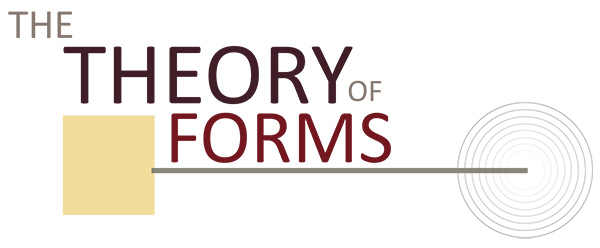
Plato knew that his teacher had divine guidance and would follow the divine voice or sign whenever he wanted to make a decision. Thus the idea that an unchanging truth existed somewhere beyond this plane of experience was fundamental to most of his theories. Plato propounded the Theory of Universals to explain the changeless and immutable ‘other world’ compared to our constantly changing lives on earth in his famous work ‘Allegory of the Cave’. In a dialogue between Socrates and Glaucon (Plato’s brother), in ‘The Republic, Book VII’, Plato explains the transitory nature of this world by showing how some chained people facing a wall of a cave can only see the shadows thrown on the wall from a fire burning behind them. The philosopher is somehow thrown out of the cave and gets to glimpse this reality, but these chained people refuse to listen to his counsel. The soul belongs to this realm of eternal truth and merely takes human form repeatedly, till it realizes its true nature. Plato infers that all knowledge is always existent in this realm of Universals, and we humans merely discover or recollect this knowledge. The sanctity of the soul has to be maintained and poetry is one of the many things that have to be avoided to save the soul.
Plato believed, “earthly objects are but pale shadows, or representatives, of their ideal, perfect forms, and that the philosopher should try to gain insights to that perfection.” He compared our view to that of those prisoners in the cave who were watching the shadows of things cast on the wall by the light of a fire, and were only dimly able to appreciate what the reality might be like. By living a just and contemplative life, the philosopher might gain some sense of those perfect forms. Hence, in ‘Ion’, written around the first decade of the fourth century, Plato echoes Socrates conviction that poetry is a kind of prophecy uttered when the mind is no longer in the poet. Also in Books II, III and X of ‘The Republic’, he believes that poetry ‘feeds and waters the passions’ creating unsteadiness and frivolousness in the heart, producing the opposite of civic virtue.
Plato’s ideal poet would be beyond 50 years of age, and would compose patriotic songs and hymns to famous personages. In Book X he further says, “If you go beyond this… and allow the honeyed muse to enter… not law and the reason of mankind… but pleasure and pain will be the rulers in our state.” However, Plato himself could not escape the clutches of the ‘honeyed muse’, as his own writing often dripped with poetry and sometimes, pathos. But his complete devotion to his teacher made him contemptuous of poetry. Socrates had always deprecated mimesis or imitation, and poetry, he said, was similar to Sophistry in that respect, which only imitated the real.

Plato’s theory of the real or universals versus the false world of objects ordered his views on poetry, art, literature and love. In fact, among the things Plato denigrated was the common understanding of love or eros. The renowned and much misunderstood concept of Platonic love derives from Plato’s conception of love as “being…of generation…of birth in beauty. Souls which are pregnant conceive wisdom and virtue.” Pandering to the lower passions is not love, as he states in Phaedrus. Love and beauty go hand in hand; only purity of love can be beautiful.
When he declared “Truth is Beauty and Beauty Truth”, John Milton summarized the idea beautifully. Wimsatt and Brooks state “….happiness (for Plato) consists not in amusement but in rational activity…include laughter among politically dangerous emotions”. Love had to be lofty, yet rational.
Plato’s idea of love was diverse from the passion and heat of love as it is understood today. For him, true love was a refining, ennobling experience that would beget beauty and be closest to reality. “Love is revealed to be the great “divine madness” through which the wings of the lover’s soul may sprout, allowing the lover to take flight to all of the highest aspirations and achievements possible for humankind”. In both of these dialogues, Plato clearly regards actual physical or sexual contact between lovers as degraded and wasteful forms of erotic expression. In his opinion, the true goal of erôs is real beauty and real beauty is the Form of Beauty, that Plato calls beauty itself. erôs finds its fulfillment only in a platonic philosophy. Unless it channels its power of love into ‘higher pursuits’, which culminate in the knowledge of the Form of Beauty, erôs is doomed to frustration. For this reason, Plato thought that most people sadly squandered the real power of love by limiting themselves to pleasures of the mere physical beauty. This belief led to hot debate on his love life, but the fact remains, that if Plato had a wife or a paramour he would have definitely included her in his dialogues, as he did with the rest of his family.
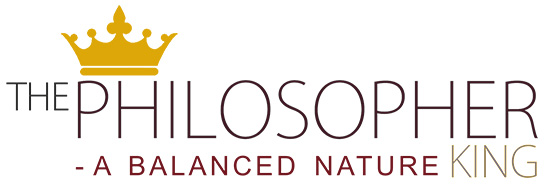
Plato found man as a poor character - a product of the forces of emotion, desire and intellect that drive human beings as the root of all evil. According to him as long as the above mentioned three traits were in proper balance, the behavior would follow certain social norms. An excess of the first two caused imbalance and chaos, whereas a surplus of the last, always led a man to greater good. Plato believed that society suffered when people pursued their desires forgetting their true spiritual nature. The panacea for this ill was “…until philosophers are kings, or the kings and princes of this world have the spirit and power of philosophy and wisdom, and political leadership meet in the same man,…cities will not cease from ill, nor the human race” (Republic). This was perhaps the most important political statement the philosopher deduced from his experience and learning. Plato exposed admirably the hollowness of the ideals of justice and equality practiced by some leaders and citizens, in ‘Gorgias’. He felt that justice became a shield for the mighty to punish the weak, who may transgress in any manner. Plato exploded another myth, that equality was a desirable social feature. He said, that it was the jealous, who wanted the successful to be brought down to their levels and who, therefore, fought for equality. “…the best way of life is to practice righteousness and virtue, whether living or dying…” (Gorgias).
For Plato, there was no easy solution; people had to be educated irrespective of their gender, status and power. He lived in a time when women were not allowed to participate in public life. His plan to include women in universal education was path-breaking, given the Athenian tradition of limiting women to household activities. He stood up as one of the first advocates of women’s rights, because he strongly upheld the view that women had equal right to education and public life, and must be given the same education that men receive. His disciple Aristotle, regrettably, did not agree with Plato’s progressive views and preferred the Athenian mode of treating women as inferior. However, Plato believed that universal education of the mind, body and spirit would yield the Guardians or philosopher-kings who would then rule dispassionately and wisely. Unlike other learners, a potential guardian would be able to learn metaphysics and apply it to daily life. He or she would display exceptional ability in tackling everyday life with calmness and capability, physical and emotional endurance, rejecting wealth accumulation and common familial attachment. This solution led to both vociferous criticism and enormous admiration. Plato was particularly bitter in his scorn of democracy as a good form of government. But one must recollect that Plato’s bitterness at what the administration had done to Socrates was also partially directed at the masses for accepting Socrates murder without protest. This probably explains his hatred of democracy. There appears a strange acrimony and intolerance of his tone towards politics and politicians, unlike the refinement of Socrates in ‘Gorgias’, which reveals the resentment he was left with, after Socrates was so needlessly executed in 399 BC.

The Age of Synthesis, as Plato’s time was called, indeed saw a magnificent fusion of pure logic, geometry, realism, ideal love, politics, art and ethics.
Undoubtedly, there has been criticism of Plato’s concept of realism, idealism and justice, but the praise has overwhelmed the reproach. Plato has always been considered less pragmatic and more mystifying. However, his recommendations that nations be ruled by wise people cannot be challenged even by his worst critics. His urging to the Athenians to be righteous seem relevant even today, after so many centuries, as if a modern day sage were advising us, surrounded as we are by gross materialism and terror. Dissemination of knowledge has lent credibility to his Theory of Universals, in that many ancient world cultures already understood and lived by such a reality. Many have tried to diminish the value of his thought by saying that his principles are found in a number of religious texts, and are therefore more religious than philosophic.
However, they fail to realize that Plato did not merely suggest that people live righteously, but he also gave detailed and logical reasons for doing so. He had many distinguished students, the chief principal among them being Aristotle who was the renowned teacher of Alexander the Great. Although the study of Plato's thought continued with the Neo-Platonists, his reputation was completely eclipsed during medieval times by that of his most famous student, Aristotle. This happened mainly because Plato's original writings were essentially lost to Western civilization until they were brought from Constantinople by the Greek Neo-Platonist, George Gemistos Plethon, around the early fifteenth century.
Only during the Renaissance, with the general resurgence of interest in classical civilization, did knowledge of Plato's philosophy become widespread again in the West, and many of the greatest early modern scientists and artists saw Plato's philosophy as the basis for progress in the arts and sciences. Aristotle, his foremost disciple, departed in significant ways from his teacher; he concerned himself not just with the ideal but also with the objective. His greater focus was on the here and now, more than on the other realms of Universals. In Durant’s words, “There was, in the Socratic-Platonic demand for definitions, a tendency away from things and facts to theories and ideas…Aristotle preaches a return to things, to …reality; he had a lusty preference for the concrete particular.”
Aristotle later founded his own school, ‘The Lyceum’ after 20 years of study, approximately in 347 BC, a date that is disputed, like most of the other dates. However, The Academy was closed in 383BC, but later revived in 410 AD by the Neo-Platonists, to be again finally shut down in 529AD by Justinian, the Christian ruler, who declared The Academy a pagan institution. Plato lived and taught till 347BC and his ideas, however, could never be clamped down through all these ages. The story of his passing away is as inspiring as that of his life. One afternoon, at a student’s wedding feast, Plato partook of the extensive meal, and in a happy frame of mind, amidst his cherished people, retired into the inner chamber for a short siesta. When he did not wake for quite a long time, his students tried waking him up, but alas! Plato had passed away in sleep.
It was a fitting finale to a virtuous life, of a giant among men who believed till the last that “…the best way of life is to practice righteousness and virtue, whether living or dying.” According to Diogenes, the historian, Plato was buried at the school he had established. His grave, however, has not yet been discovered in any archeological investigations. A dearly loved and respected figure in and around Greece, Plato left behind him a body of work that structured the Western thought.
It would be fitting to culminate the journey of this great historian with the words of Radia and Baldwick, editors of Plato’s Gorgias: “Plato stands with Socrates and Aristotle as one of the shapers of the whole intellectual tradition of the West.”
Biography of Plato | 7 Comments >>
7 --Comments
My bro bookmarked this webpage for me and I have been reading through it for the past couple hrs. This is really going to benefit me and my friends for our class project. By the way, I enjoy the way you write.
Thanks for all your efforts that you have put in this. really fascinating information .
Brilliant, thanks, I will subscribe to you RSS soon...
I'm extremely impressed with your writing skills and also with the layout on your blog. Is this a paid theme or did you modify it yourself? Anyway keep up the nice quality writing, it is rare to see a great blog like this one these days..
I was looking at some of your blog posts on this website and I think this web site is rattling informative ! Retain putting up.
you have a terrific weblog here! would you like to create some invite posts on my blog?
Leave Comment.
Your email address will not be published. Required fields are marked.
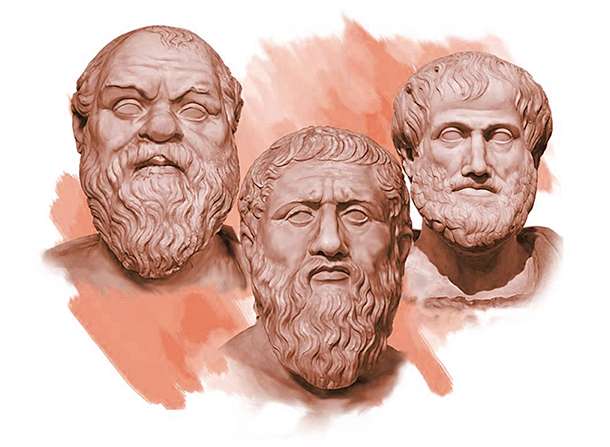
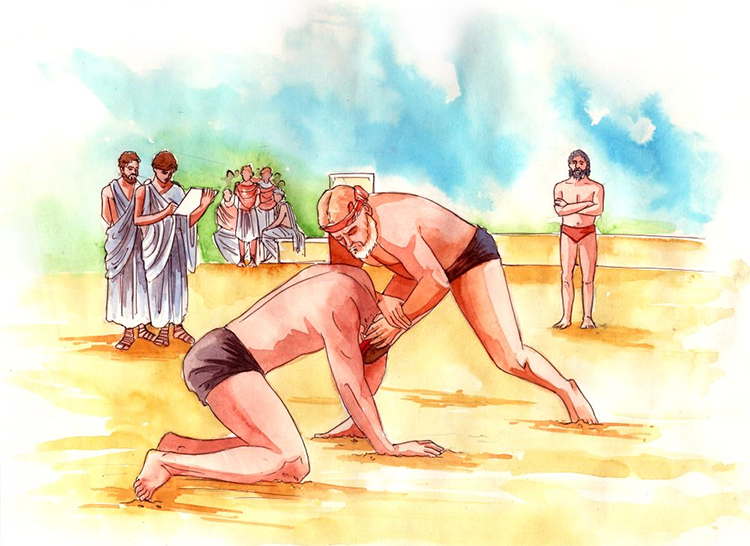
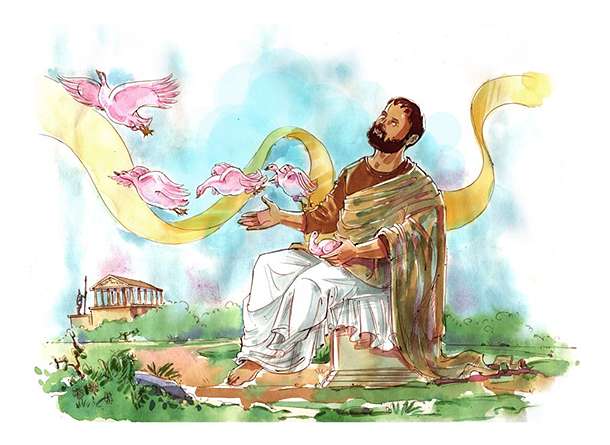
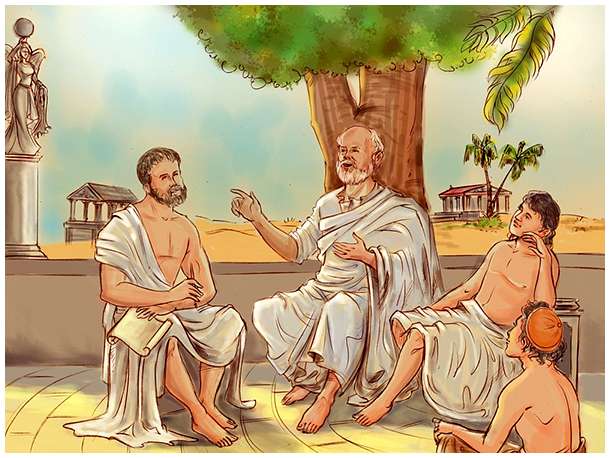
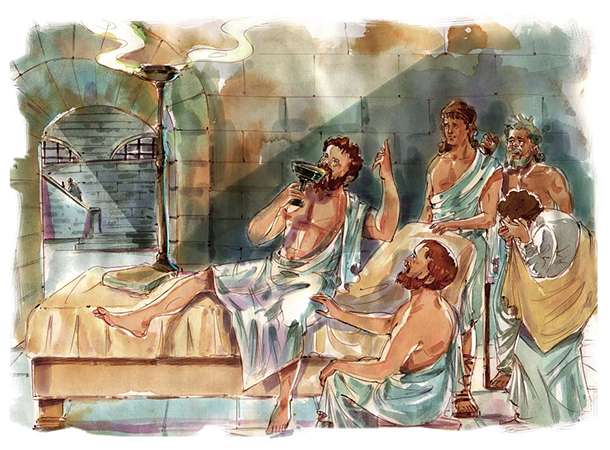

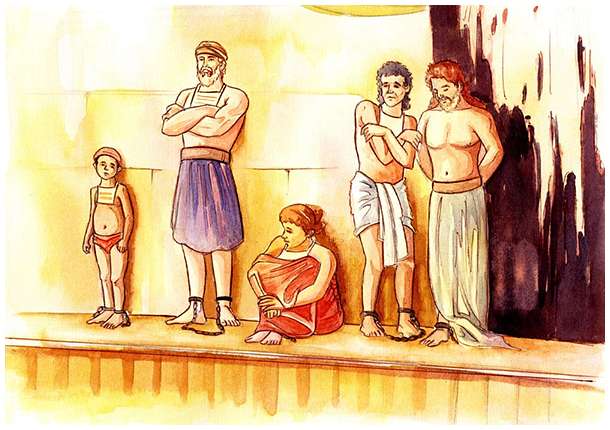
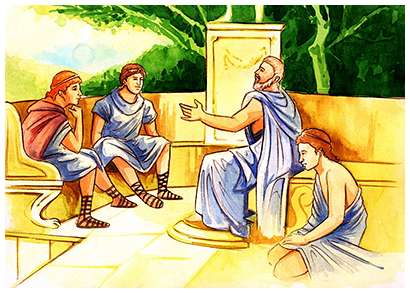

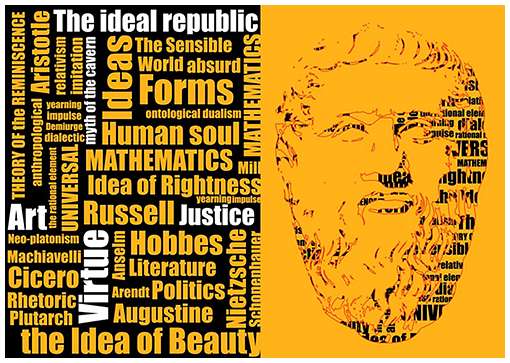


Interesting info on Plato. Helped me on my assignment on Greek Philosophers. Will come back for Diogenes of Sinope and Apollophanes.